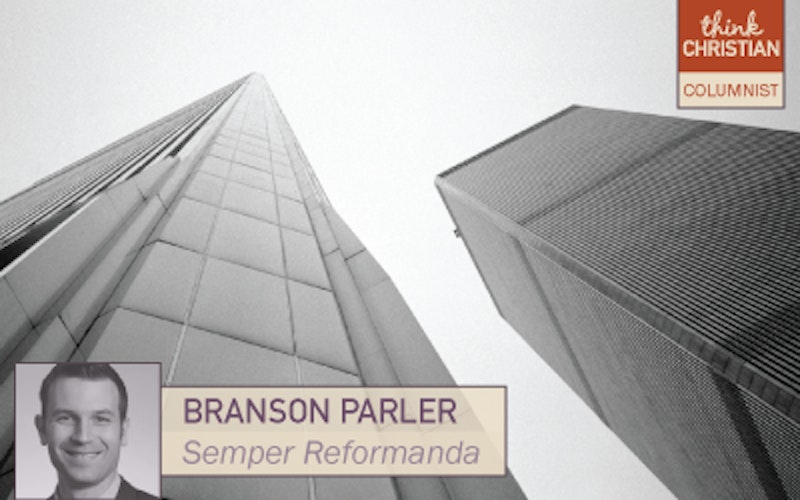
Culture At Large
Brittany Maynard and 9/11 jumpers: an analogy that doesn’t work
Much has been written about Brittany Maynard’s Nov. 1 decision to end her own life rather than face an ongoing battle with terminal cancer. Yesterday, Benjamin Corey penned a striking piece at Patheos that compared Maynard with those who chose to jump out of the World Trade Center towers during the 9/11 terrorist attacks. The piece is powerful and the analogy is provocative, yet I think Corey is wrong. Thomas Aquinas’ view of moral actions and free choice can help us see why.
Corey’s analogy does not adequately distinguish and clarify the actions, intentions and effects of Maynard’s decision and those of the 9/11 jumpers. Here is where Aquinas’ idea of “double effect” applies. Aquinas notes that someone can undertake an action that has a good intention but may have multiple effects, some of them bad. For example, if someone attacks my family and I attempt to stop this person but also hurt them, should I be charged with assault? Aquinas would say no, because my intention is not to harm the attacker but to preserve the good of my family’s life and well-being. Or take another example: a Christian who preaches the Gospel in the context of persecution knows that one effect of this might be martyrdom. When this person is martyred, should this be considered suicide? No, because even though they foresaw that this could be an effect of their action, their intention was to make the Gospel known.
So what was the intention of the 9/11 jumpers when they leapt out of the burning buildings? Could they foresee the natural effect of this, namely death? Certainly. But dying was not their primary intention, living was, even if it was only for a few more seconds. Another comparison further clarifies this distinction. If someone jumps out of a burning building from the second floor, is their primary intention escaping death or seeking it? Obviously in that scenario, we’d recognize that their intention is “escaping death.” Their primary intention would not be killing themselves, even though one could die from jumping out a second-story window. The same applies to anyone jumping out of a burning, collapsing building, whether it’s two, 20 or 200 stories high. That’s why we would never classify 9/11 jumpers as “suicidal.” Death is an effect of their action, but it’s not the primary intention of their action.
This is not just about how we die, but how we live.
Corey’s argument also downplays Maynard’s freedom and responsibility, key elements in any Christian view of who we are as God’s image-bearers. Concluding his piece, Corey states, “She died of terminal cancer, and that is very, very sad.” This statement is confused and confusing from a medical, theological and philosophical standpoint. We are all dying. If we are to be a society that honors life, we must distinguish between letting someone die due to a disease running its course and the active self-destruction inherent in suicide. Aquinas’ line of thought helps to clarify that Maynard did not die of natural causes; the ultimate cause was her own choice and rational decision.
In the end, Corey ironically deprives Maynard of what she claimed to value most in her "death with dignity" campaign: choice. Certainly, she did not choose to suffer from cancer. But our choices always take place within the limits that make us human. So let’s not deprive her of dignity and responsibility where she did have a real choice. Neither Maynard nor the 9/11 jumpers were mere animals acting on instinct. They were rational creatures deliberating about how best to pursue good ends, whether those deliberations took place in seconds or in months.
As we continue to have this ongoing conversation, we ought to recognize that this is not just about how we die, but how we live. And our choice here is quite limited: to either die daily into dependency on God or to die daily by severing ourselves from Him.
Topics: Culture At Large, Science & Technology, Philosophy, News & Politics, Social Trends, North America